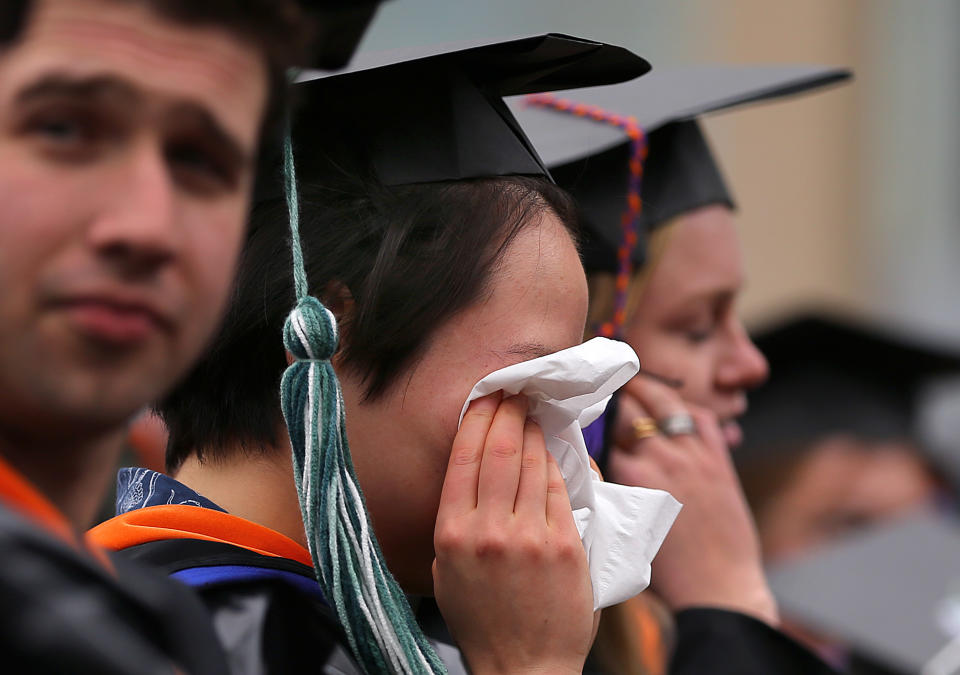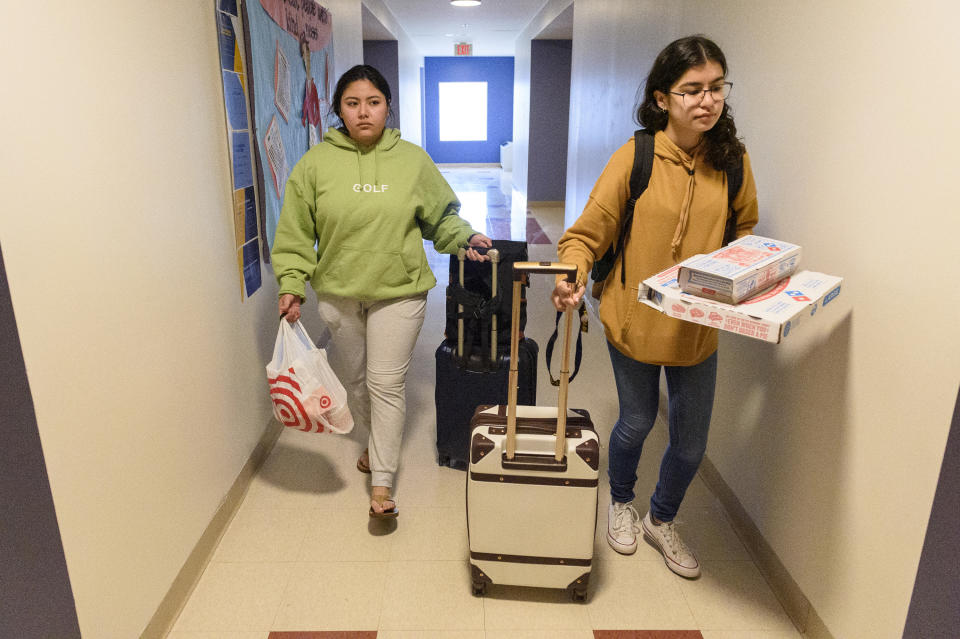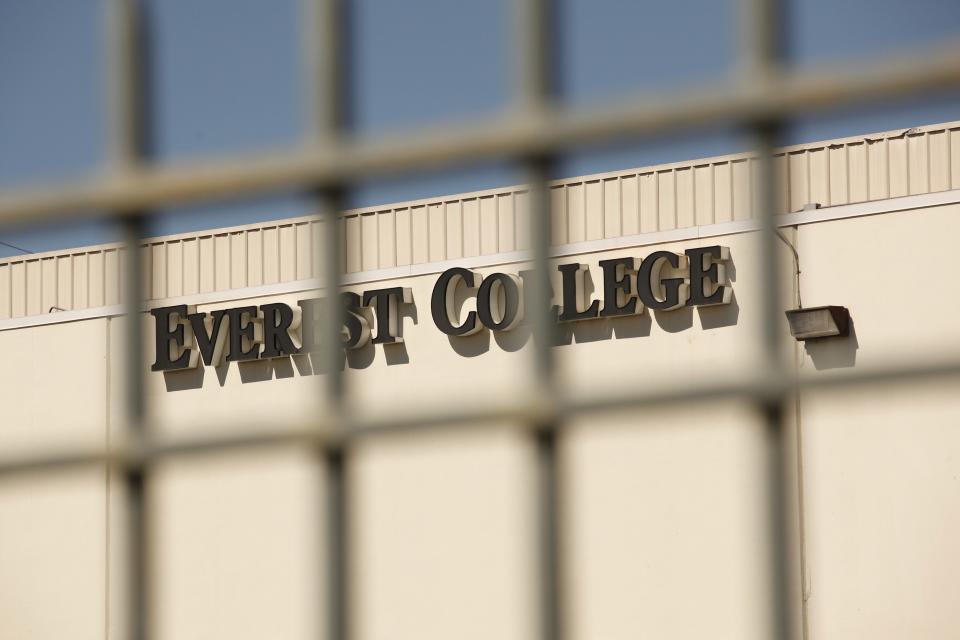Democratic lawmakers worry about for-profit colleges reaping benefits from coronavirus stimulus package
Congress provided $14 billion to help the higher education industry in the $2 trillion stimulus package. And Democratic lawmakers are worrying about whether for-profit colleges would be able to access that money.
In a letter obtained by Yahoo Finance, Senators Elizabeth Warren (D-MA), Dick Durbin (I-IL), Sherrod Brown (D-OH), and Richard Blumenthal (D-CT) expressed concern over how the Education Department (ED) was going to interpret the CARES Act and how that money would be directed.
“The coronavirus disease 2019 (COVID-19) pandemic has jeopardized the health, learning, and livelihoods of millions of vulnerable students and currently threatens to critically destabilize colleges and universities across the country,” the lawmakers wrote. “We write to request that the U.S. Department of Education … clarify whether it will allow for-profit colleges to be eligible for the Higher Education Emergency Relief Fund authorized by Congress in the Coronavirus Aid, Relief, and Economic Security Act (CARES Act).”

‘The amounts going to for-profits are larger than I anticipated’
As college campuses across the country remain closed with the possibility of a dip in revenue looming, higher education institutions have been eager for some help from the federal government. But ED has yet to make a decision on whom it will be funding.
“The amounts going to for-profits are larger than I anticipated,” the Century Foundation’s Bob Shireman told Yahoo Finance, explaining that the way ED counts each school is going to be based on how many full-time equivalent Pell Grant recipients and non-Pell Grant recipients students are enrolled.
And even though students at community colleges are low-income, they’re not full-time — and are thus likely to see less funding as compared to those attending for-profit colleges.
In addition, for-profits have an added incentive: “A for-profit school owner gets to pocket all that tuition money, so they sign everyone up full time and they fill out the forms for them,” Shireman noted, as opposed to “community colleges, where tuition is often low, eligible students often are not receiving the aid.”

Democratic senators are encouraging the department to give that money to public and nonprofit colleges, and prohibit for-profit colleges from accessing that pool of funds.
“If the Department determines that for-profit colleges are eligible for this funding, we urge the Department to include in such a determination strong accountability policies to support students and protect taxpayers, including policies to prohibit for-profit colleges from using such funding for any purposes beyond those which directly support student instruction, emergency financial aid to students, and student support services central to schools’ educational missions,” the letter stated.
In particular, if federal funding went to any for-profit higher education institution, the Democrats proposed that all of that money should go towards student instruction, emergency financial aid for students, and student support services relating to education objectives.
They also call for a ban on for-profits using that money for executive compensation (they also ask for-profit colleges that get any federal dollars to freeze exec pay), ban on publicly-traded for-profits from buying back stock (just like the airline industry), ban them from using that money for ad or marketing or recruitment spend, and on “seeking additional stimulus funds” from other sources not allowed by the CARES Act.
In the meantime, ratings agency Moody’s Investor Service said that the pandemic was likely to have a negative impact on higher education across the world — particularly on public institutions in the U.S., in part due to government funding cuts and lower investment income.

Skepticism over for-profits
Democrats have long been wary of for-profit colleges, describing them as predatory entities that neither provide high quality education nor help its graduates find solid careers. And they’re also saddled with high levels of student debt.
Data from ED in 2019, which looked at undergraduate enrollment data from 2015 to 2016 for students who went to private for-profit colleges, revealed that 85% of them took out a student loan to pay for school — averaging at around $43,600.
In comparison, only 69% of those who went to a private nonprofit, and 65% of those who went to a public institution took out student loans, averaging at about $32,500 and $27,000, respectively.
In any case, the senators’ concern is not new. The New York Times previously noted that for-profits could be a possible winner of the stimulus package, arguing that there was a provision in the stimulus bill that would allow for for-profit colleges to take advantage of federal money and federal student loans.
—
Aarthi is a writer for Yahoo Finance covering consumer finance. She can be reached at [email protected]. Follow her on Twitter @aarthiswami.
Read more:
House Democrats unveil bill to cancel $30,000 in student debt per borrower amid coronavirus
Coronavirus student loan relief: Education Department says borrowers can ask for a payment pause
Biden backs Democrats' student debt cancellation push amid coronavirus outbreak
Read the latest financial and business news from Yahoo Finance
Follow Yahoo Finance on Twitter, Facebook, Instagram, Flipboard, SmartNews, LinkedIn, YouTube, and reddit.
